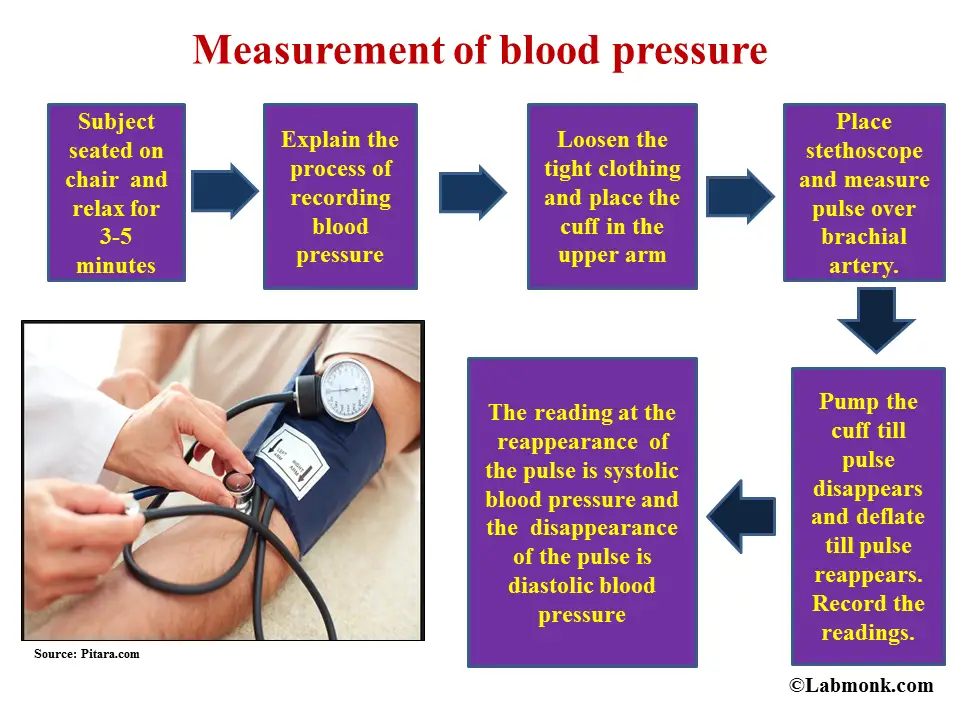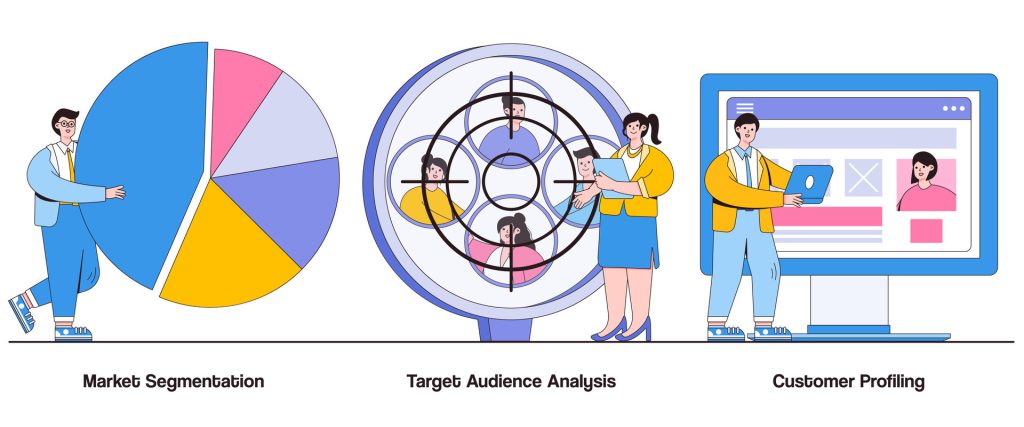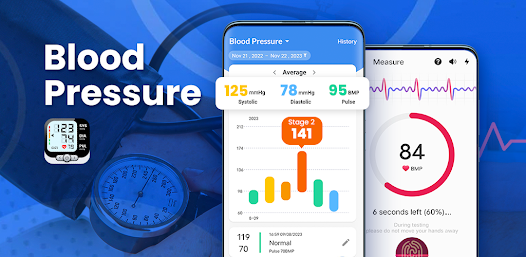Android blood pressure apps offer convenient ways to track and manage this vital health indicator. This comprehensive guide explores the features, benefits, and best practices for utilizing the blood pressure app on Android devices. From understanding blood pressure basics to leveraging advanced app functionalities, users will gain valuable insights into optimizing their health monitoring experience.
Introduction to Blood Pressure App on Android
Blood pressure monitoring on Android through specialized apps. With intuitive interfaces, these tools offer convenient ways to track and manage your health. Easily accessible and user-friendly, Android blood pressure apps empower users to stay proactive about their well-being, enabling early detection and effective management of potential health issues.

Recording Systolic and Diastolic Measurements
Recording systolic and diastolic measurements is essential for effective blood pressure monitoring. Systolic pressure represents the force exerted on artery walls when the heart contracts, while diastolic pressure indicates the pressure in the arteries when the heart rests between beats. Here’s how to accurately record these measurements:

- Prepare for Measurement: Sit in a quiet, comfortable place with your back supported and feet flat on the floor. Rest for 5 minutes before taking measurements to ensure accuracy.
- Select Proper Equipment: Use a validated blood pressure monitor with the appropriate cuff size for your arm circumference. Ensure the monitor is calibrated and functioning correctly.
- Position Yourself: Sit upright with your arm supported at heart level. Remove any tight clothing covering the arm where you’ll place the cuff.
- Apply the Cuff: Wrap the cuff around your upper arm snugly, with the bottom edge positioned about an inch above the elbow crease. The cuff should be aligned with the brachial artery.
- Take the Measurement: Start the blood pressure monitor according to the manufacturer’s instructions. Remain still and quiet during the measurement process to avoid inaccuracies.
Personalized Target Setting
The Blood Pressure App customizes targets based on users’ health profiles, offering safe and achievable goals aligned with medical guidelines. It guides users in setting realistic targets and tracks progress over time, providing visual feedback and motivational support. Users can adjust goals as needed and receive personalized insights into associated health risks. Integration with healthcare providers enables collaborative monitoring. Overall, the app empowers users to manage their blood pressure effectively by tailoring targets to individual health parameters, promoting healthier outcomes and sustained motivation.

Insightful Health Analysis
The Blood Pressure App provides insightful health analysis by analyzing users’ blood pressure data and offering meaningful insights into their cardiovascular health. Utilizing advanced algorithms, it identifies trends, patterns, and potential risk factors associated with blood pressure fluctuations. The analysis includes personalized recommendations for lifestyle changes, medication adherence, and preventive measures to improve overall cardiovascular well-being. Users receive comprehensive reports summarizing their health status and progress, empowering them to make informed decisions and take proactive steps towards better health outcomes.
Features of the Blood Pressure App
Blood Pressure App is a comprehensive tool designed to monitor and manage blood pressure levels effectively. Its features include:

- Measurement Tracking: Users can record their blood pressure readings regularly, including systolic and diastolic values, along with pulse rate.
- Graphical Analysis: The app provides graphical representations of blood pressure trends over time, allowing users to visualize their progress and identify patterns.
- Customizable Reminders: Users can set personalized reminders to take their blood pressure measurements at specific times, ensuring consistency and accuracy.
- Data Export: The app enables users to export their blood pressure data in various formats, facilitating sharing with healthcare professionals or for personal records.
- Health Insights: It offers insights and tips on maintaining healthy blood pressure levels through lifestyle changes, such as diet and exercise.
Benefits of Using the Blood Pressure App
Using the Blood Pressure App offers numerous benefits:
- Convenience: Users can monitor their blood pressure anytime, anywhere, using their smartphone or wearable device.
- Tracking: The app allows users to track their blood pressure readings over time, enabling them to identify trends and patterns.
- Alerts and Reminders: Personalized reminders help users stay consistent with their blood pressure monitoring schedule and medication intake.
- Empowerment: Users gain a better understanding of their blood pressure levels and how lifestyle factors impact them, empowering them to make informed decisions about their health.
- Early Detection: Regular monitoring can help detect any abnormal fluctuations in blood pressure early, allowing for timely intervention and prevention of complications.
- Communication with Healthcare Providers: Users can easily share their blood pressure data with their healthcare providers, facilitating better communication and informed decision-making during medical consultations.
Best Practices for Utilizing the Blood Pressure App
Utilizing the Blood Pressure App effectively involves following these best practices:
- Regular Monitoring: Consistently measure your blood pressure as recommended by your healthcare provider to establish a reliable baseline and track changes over time.
- Accurate Input: Ensure accurate data entry by following proper measurement techniques and entering readings promptly and accurately into the app.
- Set Realistic Goals: Establish personalized blood pressure targets in consultation with your healthcare provider, considering factors such as age, gender, and existing health conditions.
- Use Reminders: Set reminders within the app to prompt regular blood pressure measurements and medication intake, ensuring adherence to your treatment plan.
Frequently Asked Questions
How do I utilize the blood pressure app on Android?
To utilize the blood pressure app on Android, start by downloading a reputable app from the Google Play Store. Follow the app’s instructions to set up your profile and input your blood pressure measurements. Use the app’s features to track trends, set reminders, and monitor your cardiovascular health regularly.
Are blood pressure apps on Android accurate?
The accuracy of blood pressure apps on Android can vary depending on the app’s design and the quality of the data inputted. It’s essential to use a validated blood pressure monitor and follow proper measurement techniques for accurate readings. Consult with your healthcare provider if you have concerns about the app’s accuracy.
Can I share my blood pressure data with my healthcare provider using the app?
Yes, many blood pressure apps on Android allow you to export or share your blood pressure data with your healthcare provider. You can typically email or print reports directly from the app to share during appointments or consultations.
What features should I look for in a blood pressure app for Android?
Look for a blood pressure app that offers features such as recording measurements, tracking trends over time, setting reminders for regular monitoring, generating reports, and syncing with wearable devices or Bluetooth-enabled monitors. Choose an app with a user-friendly interface and positive reviews from other users.
How often should I use the blood pressure app on Android?
It’s recommended to use the blood pressure app on Android regularly, ideally at least once per day or as directed by your healthcare provider. Consistent monitoring allows you to track trends and changes in your blood pressure over time, helping you and your healthcare team make informed decisions about your cardiovascular health.
Can blood pressure apps on Android help me manage hypertension?
Yes, blood pressure apps on Android can be valuable tools for managing hypertension. By tracking your blood pressure readings regularly and following your healthcare provider’s recommendations, you can monitor your condition closely and make lifestyle changes or adjustments to your treatment plan as needed.
Are blood pressure apps on Android suitable for people with other cardiovascular conditions?
Blood pressure apps on Android can be beneficial for people with various cardiovascular conditions, including hypertension, but it’s essential to consult with your healthcare provider to determine if the app is suitable for your specific needs. Your healthcare provider can provide guidance on using the app effectively as part of your overall health management plan.
Are blood pressure apps on Android secure and private?
Reputable blood pressure apps on Android prioritize user privacy and security by implementing measures such as encryption, secure data storage, and adherence to privacy regulations. Before using an app, review its privacy policy and permissions to ensure that your data is protected. Avoid apps that request unnecessary permissions or have a history of security issues.
Conclusion
Utilizing a blood pressure app on Android offers a convenient and effective way to monitor and manage cardiovascular health. By downloading a reputable app, users can track their blood pressure measurements, set reminders for regular monitoring, and share data with healthcare providers for informed decision-making. While accuracy and security considerations are important, selecting a validated blood pressure monitor and following proper measurement techniques can enhance the app’s reliability.

